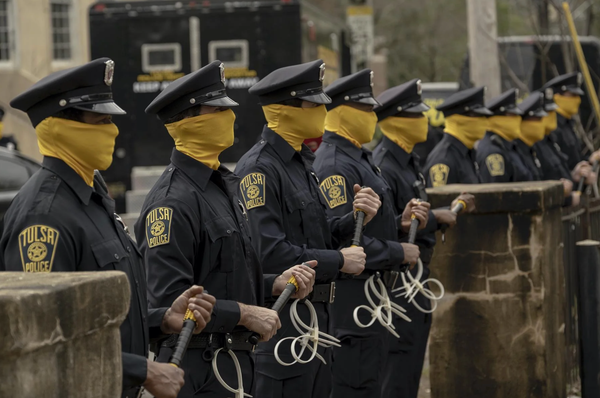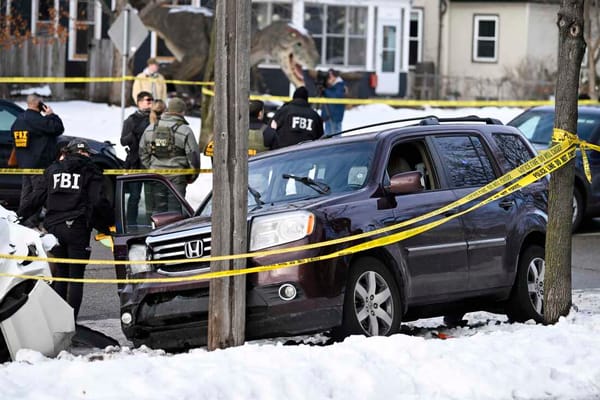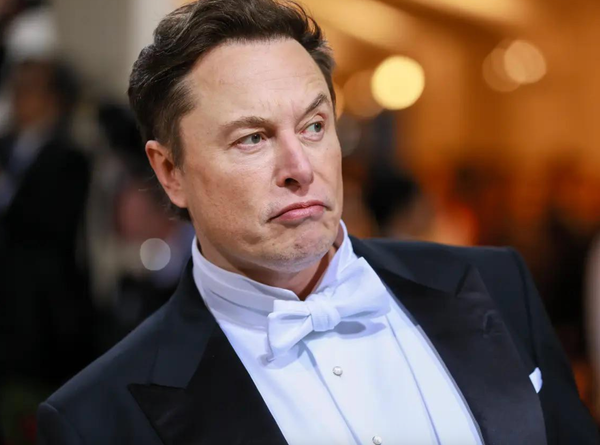Episode 6: Imprisoned in a system that won’t let us act
Reflecting on the IPCC report: "We're being denied climate agency"
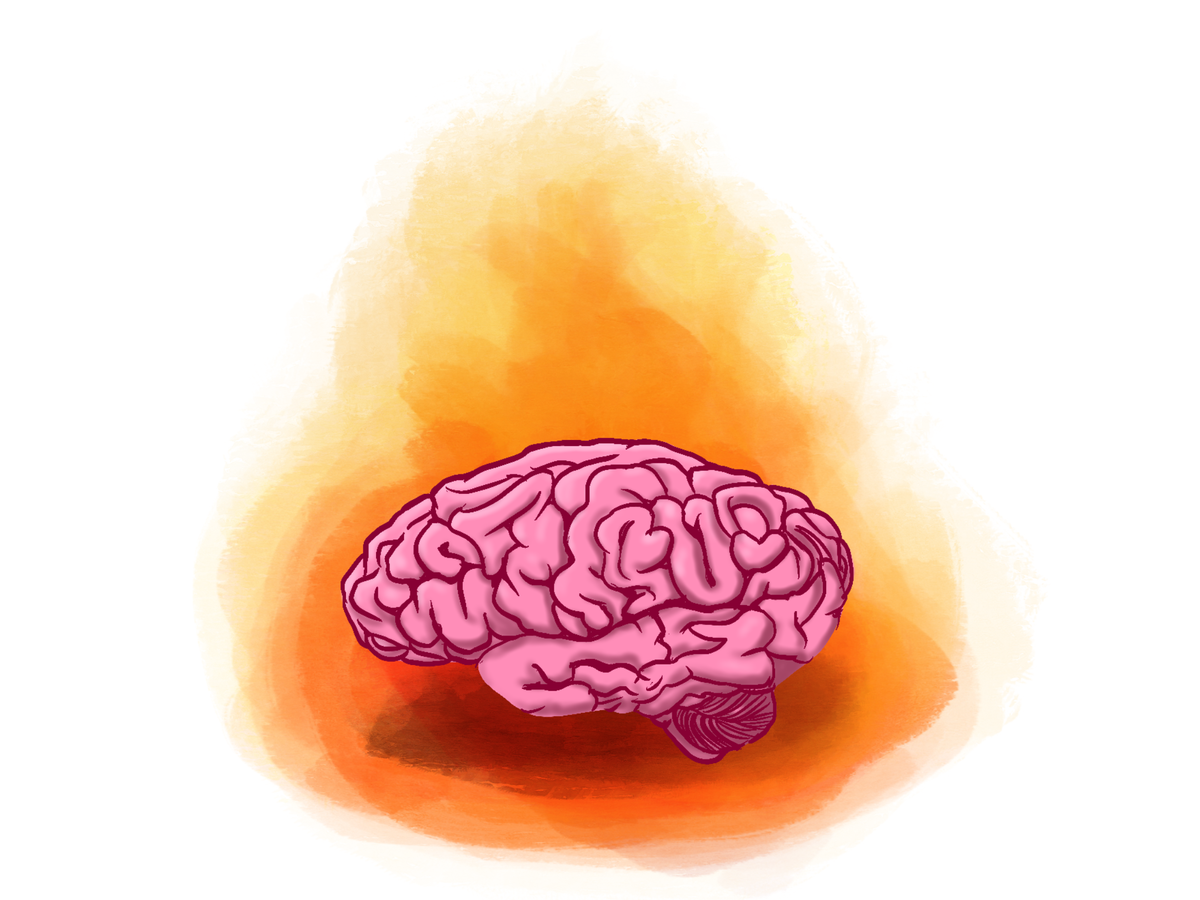
Hi,
I had my first surfing lesson this month. I wasn’t very good.
It started off okay: I was pretty good at paddling, and smashing through some (tiny) waves to get out. I managed to keep by surf board straight, and I could up sit up and turn around pretty quickly. I could even paddle and catch a wave.
The problem was standing up. How in God’s name are you meant to stand up? What, you’re meant to go from this wonderful lying down position to magically standing and balancing while a wave threatens to smash down around you?
In other news I had a great time and got a very chafed pink belly. It was some escapism from a month that seemed doomed. The Delta variant has been making its presence known. US hospitals are stretched. Nine Inch Nails cancelled all their shows that I was looking forward to seeing (wise), and New Zealand has gone into a nationwide lockdown (also wise).
And in the midst of this, the UN’s “Intergovernmental Panel on Climate Change” released a new report that felt like a swift punch to the face. Their reports are usually sobering reading, but this one was horrifying. A “code red for humanity” is how UN Secretary-General António Guterres put it.
The climate right now is warmer than it has been in about 125,000 years. And it’s just going to keep getting worse with more droughts, wildfires and floods. We aren’t on target to stop something that now seems all but inevitable.
All this was running through my head as I walked to the beach, preparing to be pummelled on my board. The sun was unrelenting, and the literal cliff to my left was a fitting metaphor for humanity’s approach to the crisis we all face.
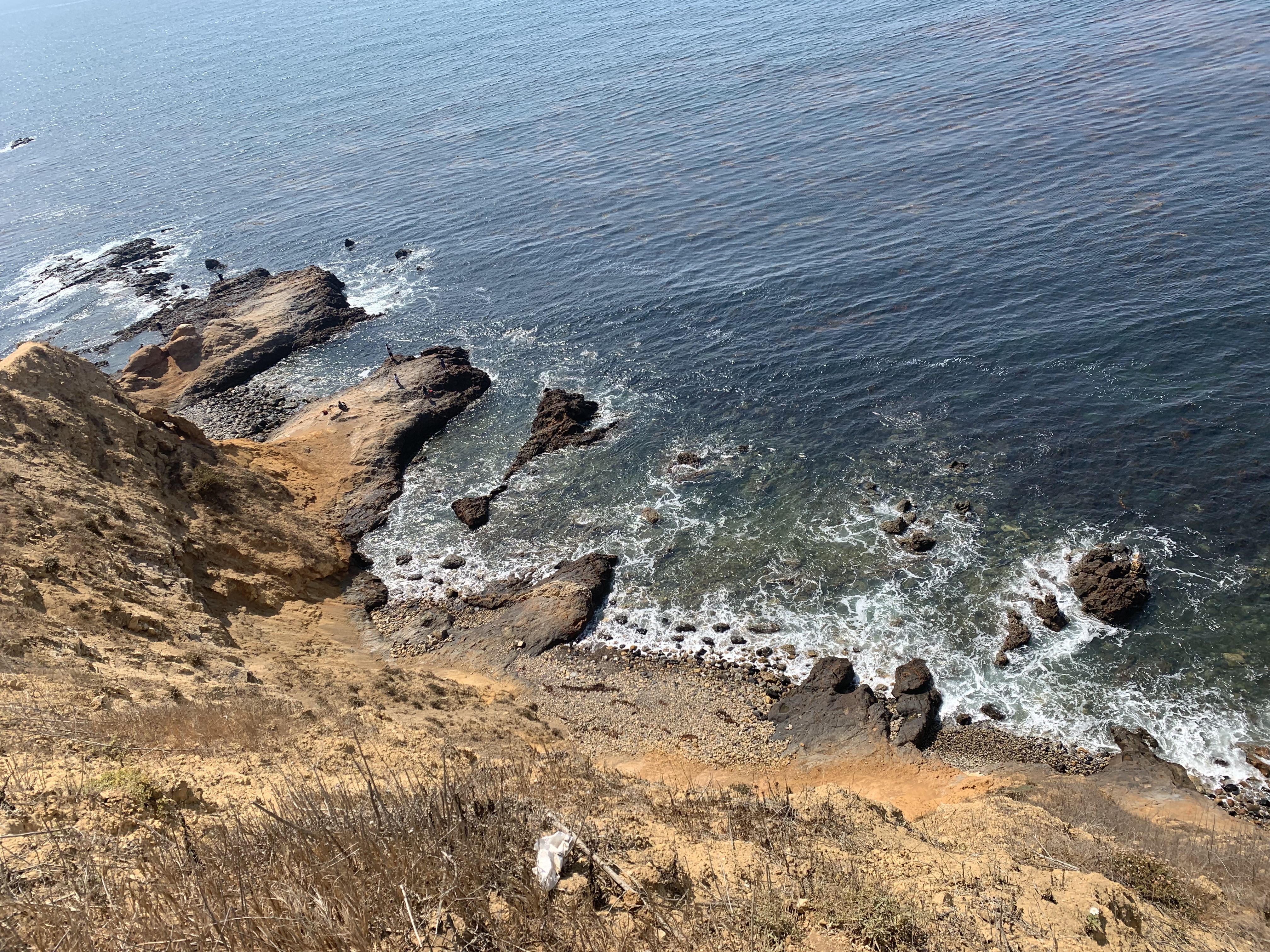
And the question running through all of our heads? “What the fuck can we do about it?”
When it comes to talk of the environment, many of us are trying to do out bit. We throw our recycling in the right bin, we use those re-usable bags at the supermarkets, and maybe we try and walk to the shops instead of drive.
All the things we’ve being told will help save the planet. But we’re not making a lick of difference. It’s futile, apart from making us feel good about ourselves. We are — as today’s guest Joshua Drummond writes — being denied climate agency. Because we’re trapped in a system that makes it utterly impossible to make a difference.
Josh has written for Webworm before, about what QAnon has in common with Evangelical Christianity. That piece seems relevant again this week, as City Impact Church held a “special meeting” for the pastor to spread anti-vaxx messaging in New Zealand.
But today, Josh writes about our total lack climate agency and how that makes us feel utterly unhinged. He also offers some ideas about what we can do. It’s a great essay, and I’m so glad to leave it with you for weekend reading. Or listening, in its podcast form.
David.
If you want more Webworm and to support the work I do here, you can become a monthly or yearly paying member. Only consider doing this if it doesn’t cause you any financial hardship!
Imprisoned in a System That Won’t Let Us Act Sanely.
an essay by Joshua Drummond

I jumped off a cliff once. Everyone else was doing it.
It was at Northland waterfall, and I was about 17. The place was a popular swimming hole and there were quite a few spots my mates and I would jump off and do bombs, but there’s one particular bit where — if you get enough of a run-up — you can clear the cliffside and plummet a height even greater than the falls.
My mates and I worked up to it. I didn’t go first; I’ve never been great with heights, but I wanted to prove myself. Plus, I have an innate practical streak that wants to see if someone else is going to get impaled before I jump into murky water myself.
They jumped, they didn’t die, it was my turn. I jumped too.
I didn’t regret it immediately; that came about a tenth of a second in, when gravity grabbed my guts in an unclenching fist and squeezed and twisted and pulled down. It was a visceral lesson; the laws of physics are a pantheon of terrible gods. They’re the authority by which cause and effect abide, and they don’t care about you.
I’d fucked with the great god gravity, and this was the “finding out” phase.
This month started with a similar set of sensations. A lurch in my stomach, a sudden, dizzying rush of anxiety. The same sense of inevitability, of being at the mercy of a caused effect. I know the feeling well, now. I get it every time a new major climate change report is released.
The IPCC has just released their Sixth Assessment Report, which draws a conclusion that will leave few surprised; climate change is real, it’s happening now, it’s getting worse, and it will get much worse if it’s not stopped.
Importantly, the report takes pains to underscore the fact that there is much we can and should do to stop warming, but that ray of hope is not what brings the feeling of falling off a cliff, the sensation as inevitability sets in and gravity grabs at your guts, pulling and twisting.
The problem isn’t the fall: it’s that we’re currently doing very little to break it.
It’s as if (to work the cliff-jump metaphor some more) we’re in free fall and the pool’s dry, but if we’re really quick we can fill it so the fall won’t kill us or even hurt too much — but the controls for the emergency sluice-gates are kept by a very small and very rich group of people who are all saying “nah, saving you would cost us too much. We’re opting for splat.”
We know exactly what’s wrong with the climate: there’s an excess of greenhouse gas in the atmosphere and it’s causing the planet to heat up. We’re clear on the cause: human activity has done nearly all of it.
We know the solution: swap out carbon-emitting technology, and work to draw down the excess carbon we’ve emitted.
So, with the problems and solutions clear for decades, what’s being done by the engines of the economy, the leaders, and the gatekeepers: business and the government? Not nearly enough.
This isn’t a sane response to an emergency. It’s inhuman. Humans are, for the most part, practical and altruistic. We are brilliant, astonishing creatures. We might be bound by gravity, but we can still fly. The essence of humanity is bound up in working together to solve problems.
That’s what makes climate change so maddening. When I say to myself, as any sane person would, “what are we doing?” and “how can I help?” the answers keep coming back, “not enough” and “you can’t.” That’s not how humans work. Being shown a problem and not being able to fix it drives us mad.
Anyone who understands the reality of climate change — of the necessity of action — is burning to act. Everyone wants to help, to work, to do. But we’re imprisoned in a system that won’t let us act sanely. We are being denied climate agency.
We’re stuck in a system we didn’t opt for, a system built for us without due care by those that benefit from pillaging the future, a system that we are frequently told is “too expensive” to change. In the media, articles about climate change mitigation measures frequently come — absurdly — with a cost-benefit analysis. “Not contributing to cooking an entire planet” is seldom listed as a benefit.
Often, taking the individual actions we are told will help ease the crisis is too expensive. Unless you’re rich, in the global scheme of things — you can’t afford an EV. Unless you’re wealthy, in terms of either time or money, you can’t afford to go waste-free, or turn your backyard into a garden, or even buy food that’s free of exploitative farming practices. Ethical behaviour has been monetised: if you want a clear conscience, you’ll have to pay for it. Even the term “carbon footprint,” now ubiquitous and synonymous with taking individual action on climate change, is compromised: it was created and propagated by (wait for it) BP, in one of the most cynical (and effective) marketing campaigns of all time.
Unable even to take the drop-in-a-bucket actions that might soothe our consciences — if not actually make a meaningful contribution — the vast majority of us have to live madly, amongst madness. To drive madness, to eat and drink madness.
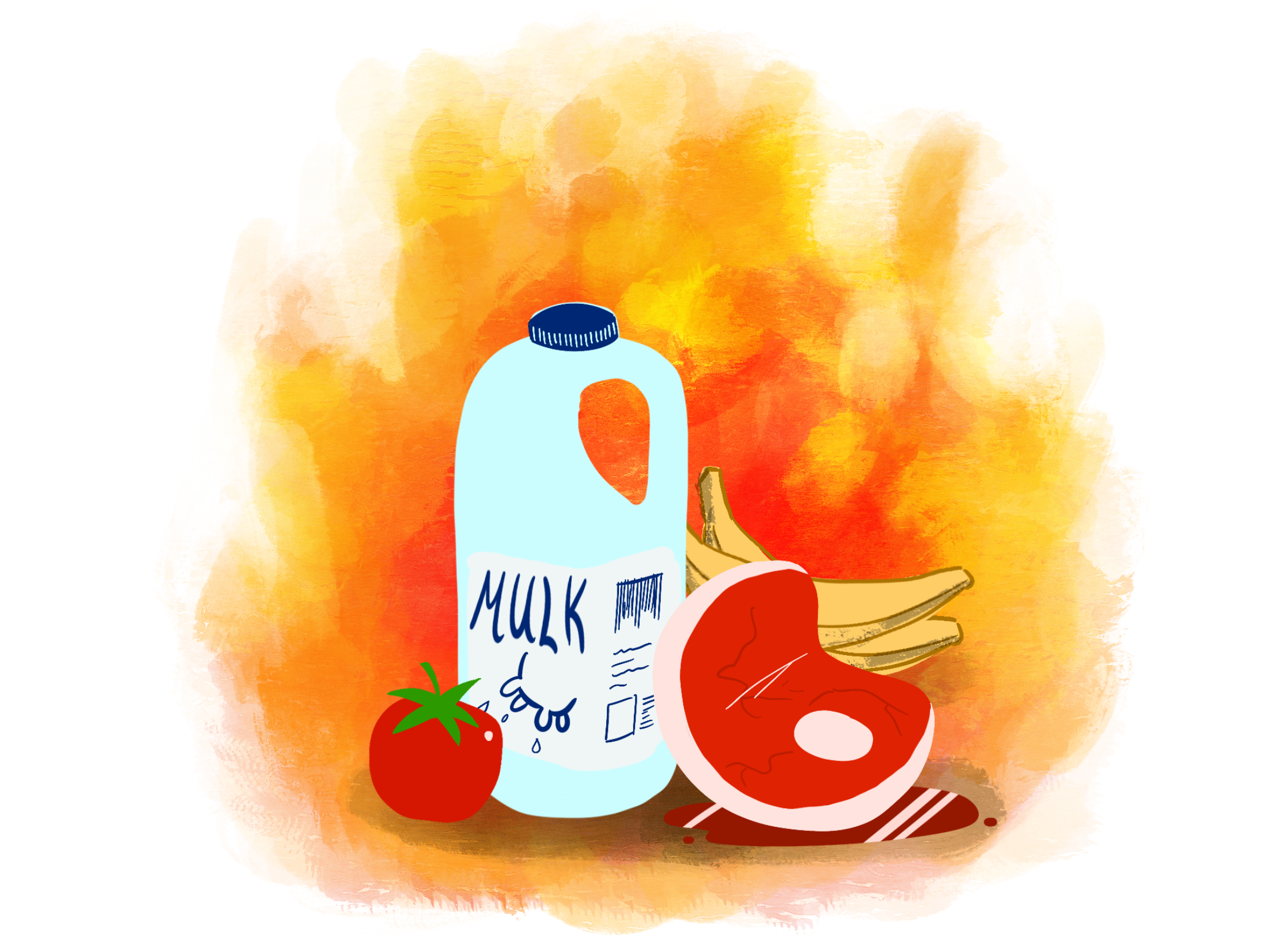
Many simple acts of daily life are poisoned with guilt over the knowledge that not only are you not helping, you are making things worse. An omnipresent, invisible chorus of judgement screams at you for decisions you can’t help making, because our systems don’t allow any other choice.
Driving? Guilty! Eating meat? Guilty! Got milk? Guilty! Got plant milk in a plastic bottle? Guilty! No wonder people embrace climate change denial, clutching it like a lifesaver. They’re just trying to stay sane.
In a sane world, we’d be pivoting hard — or have pivoted long ago — having never debated whether having a liveable biosphere is good for business. Government and business alike would have switched priorities, poured their all into doing the needful. There would be jobs, endless jobs, available to do work that matters.
But it’s not a sane system, and there are few such jobs available. Searching on a hellsite like LinkedIn for “climate change” or “sustainability” is an exercise in futility. Many of the jobs available are in niche positions, or start-ups, or don’t pay well enough for someone without independent means to take them.
Tellingly, many climate jobs are at insurance companies — insurance being one of the few sectors that does not have the luxury of choosing not to include climate change in its business model. What we’ve ended up with is a crisis everyone knows about but is powerless to work on fixing, because it’s hard to make rent or pay the mortgage with jobs that should exist but don’t. And the great Invisible Hand of the market isn’t interested in helping out, because saving the world for future generations doesn’t pay now. The Hand would rather sell stuff. Everyone loves stuff.
Absent of the ability to live sanely and purposefully in a world that’s on fire, many of us privileged enough to live out of the danger zones live muted, blunted lives.
Videogames are a welcome retreat, an opportunity to save the world, albeit a virtual one. Even doomscrolling is a balm on the open sore of “what can we do?” It feels like taking action. But it’s not.
This forced nihilism poisons living. Faced with making choices about the future, a lot of my peers throw up their hands. What’s the point in trying to own a house when the housing market’s been cornered and whipped into a frenzy and the government has just kind of given up on doing anything meaningful about it? Why have kids, when they’ll likely have difficult, impoverished lives? Why risk saving for a future when the financial markets are rigged casinos and you can watch your future disappearing, live-streaming, one climate-change-fuelled fire/flood/storm/heatwave at a time?
Looking around, it’s hard to avoid the conclusion that the future is being stolen from us. Governments and businesses should be creating ways to create good futures, to live within planetary boundaries, to live sanely. But we have been deliberately, systematically conned: by fossil-fuel and fossil-fuelled businesses who have worked tirelessly to promote the status quo and remove barriers to reaping the planet for endless profit, and by governments who have eagerly acquiesced to their demands in order to promote the fairy-tale of endless economic growth.
There are a few hundred companies responsible for the majority of climate change, aided and abetted by either actively denialist or intactivist governments. The people who did this knew exactly what the effects would be, and they did it anyway.
Stop feeling guilty. They did this. It is their fault. Not yours. Theirs. The actions of fossil fuel companies and their enablers have murdered tens of thousands of people in the present and hundreds of thousands — perhaps millions, perhaps many more — in the future; those not yet born will bear the brunt. So will those just born, like my baby boy.
And this is just the human cost; the cost to the rest of nature is literally incalculable. But it’s easy to list some of the impacts. Under business-as-usual, millions of species face endangerment or extinction. Coral reefs will die. Forests will burn and become savannah. Sea level rise will inundate cities and shorelines.
Maybe this one will hit home for you, because it does for me: in the business-as-usual future, climate change will kill the beaches.
“Almost half of the world’s sandy beaches will have retreated significantly by the end of the century as a result of climate-driven coastal flooding and human interference, according to new research,” writes The Guardian.
Usually, when humanity faces murder and destruction on this sort of scale, we react in disgust and fury. Tribunals are formed and justice is meted out. And yet, nothing. It seems we simply don’t have laws for those that kill with commerce. When will the climate criminals and their enablers, their paid shills and useful idiots, face justice? Will they ever?
Like many, I am angry about this — very angry — but it’s hard to know what to do with this fury. It runs too deep, like a hidden current in a river. Occasionally, it rises, and it’s terrible to see. To feel.
And being angry, like being earnest, is not cool. It’s not done. The correct attitude is a sort of supercilious, post-ironic detachment, an “oh well, we’re all fucked, so let’s just enjoy the ride, lmao.”
I’m tired of even trying to be cool about all this. The effort it takes to sustain protective detachment isn’t worth it. I am desperate to channel my fury at a stolen, broken world into something useful, something that helps, something that isn’t shouting at the wind, or just being testy on Twitter.
And I worry that, deprived of justice, the collective anger and dispossession of millions will spill over into something vengeful and terrible. A quote from one of those goofy Marvel films comes to mind: “If we can't protect the earth, you can be damn sure we'll avenge it.” Such great escapism, to watch the world being saved by powerful people who, in a marked break with reality, actually do the right thing. You can see why the films make so much money for one of the largest corporations on the planet.
I don’t want violence. Most people don’t, or there’d be a lot more dead fossil fuel executives. But I’m not prepared to watch business-as-usual turn our only home into hell. Because there is still time — to blunt climate change’s worst impacts, to save what can be saved, to make a better world. Denied agency, activism is the last sane position left.
Leading climate scientist Michael Mann writes about the futility of “doomism” in his book, The New Climate War. He warns that the supercilious “we’re all fucked, who cares” attitude plays directly into the hands of warmist interests, those who are desperate for business-as-usual to continue so they can make and keep their billions.
“This is the greatest threat and greatest challenge we’ve ever faced as a civilization,” Mann says. “If you’re not out there fighting for climate action, you’re giving up on the human race.”
To disrupt business-as-usual, climate scientist and activist Peter Kalmus says “we need a billion climate activists.” And the work of activism begins with imagining a better world. It’s not even that hard; others have already done this work, and there are many good futures to choose from.
Some of it is table stakes. Commonsense, good ideas. Cities would be made walkable, accessible to active transport. Public transport would be fast and free, and special accommodation would be made for those less able. Electricity would be generated renewably — we’ve got plenty of wind, ocean, and sunshine. Distributed grids and batteries would create resilient infrastructure. Farming would be made much more sustainable, becoming a carbon sink instead of a net polluter.
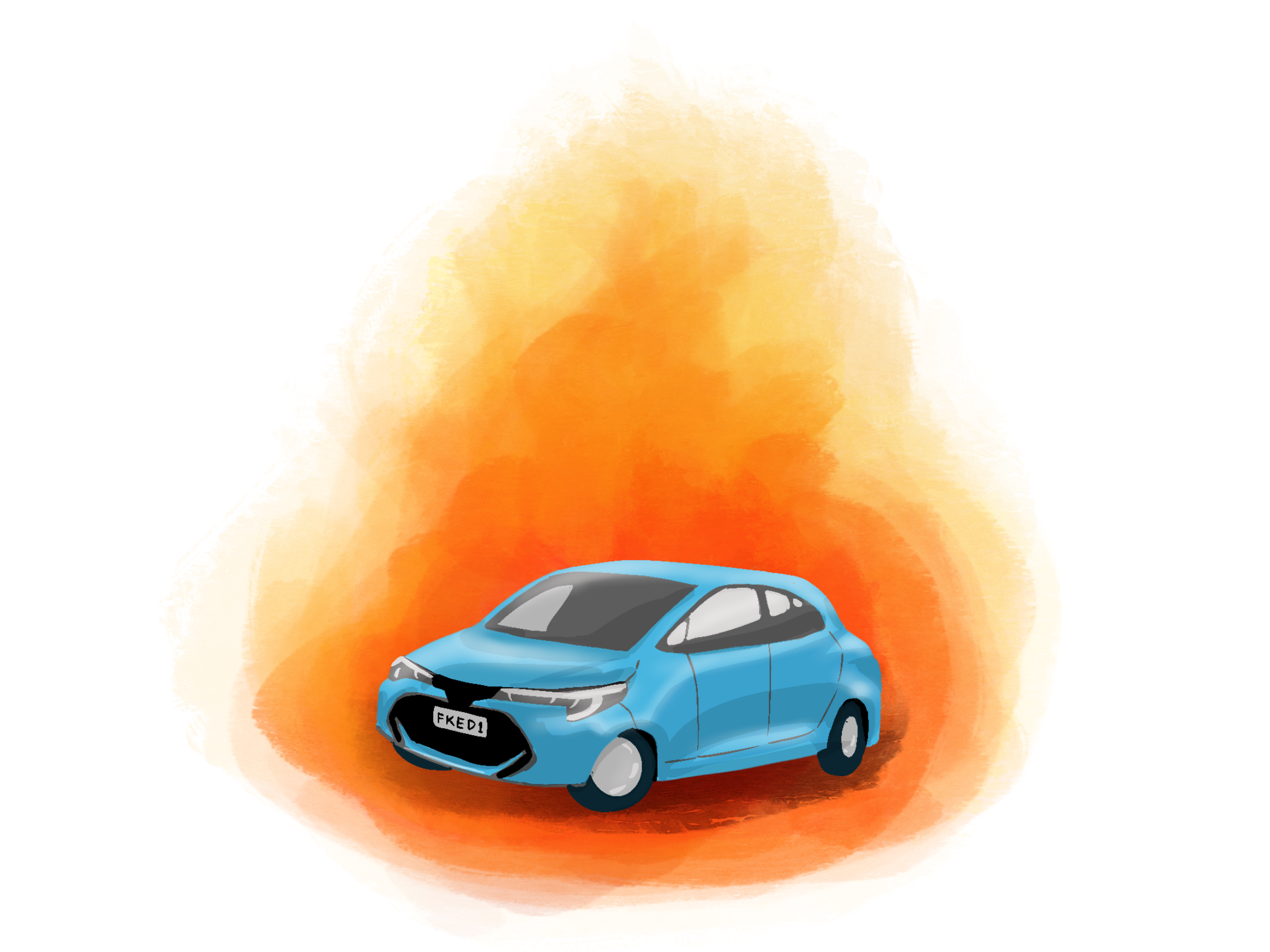
My own personal good future has some specifics. In the near term — ideally today — the media would pledge not to run climate change denial in either news or opinion, and would refuse to take advertising or sponsorship money from fossil fuel interests. They’d abandon the senseless culture war they’re encouraging for clicks, stirring up audiences against fundamentally benign concepts like cycleways. They’d treat climate change as the epoch-defining issue it is, and cover it widely and fairly, instead of sporadically and half-heartedly.
They’d stop platforming politicians and other people that lie and prevaricate about the climate crisis.
The media also need to stop stirring up fear about how much this stuff costs, because the cost of not doing it is almost too much to comprehend: one estimate puts global GDP losses at $610 trillion in cumulative damages to 2100, the equivalent of at least one Covid-sized economic shock per year.
This stupendous figure doubles once you factor in sea-level rise. Instead of asking “how much will this cost?” we need to ask “how much work will this be?”
To paraphrase Kim Stanley Robinson in his cli-fi book The Ministry For The Future: Money isn’t real. Work is real. People are real. Governments need to assess what needs to be done in terms of climate change mitigation, and then just pay people to do it. Sure, it’s hard work, but when work is meaningful, people actually want to do it.
But there’s no need to dispense with the collective fiction of money as long as we can make it work for all of us, instead of a vanishingly small minority of fixers and gate-keepers. For instance, we can take the money back from the fossil fuel companies who’ve stolen it from our future. We can set a hard limit on wealth, so the value of everything the world does can stop being hoarded by 0.1 percent of the population. The billionaire-stans may screech, but it’s the best form of justice fossil-fuel executives and their shills can hope for.
And I can hear the economists stirring already, so let’s upset them some more. We need to stop treating free-market, orthodox economics like it’s the immutable law of nature. In fact, by ignoring the biosphere, by treating the environment as just an externality, orthodox economics has done more damage than perhaps any other ideology.
A new economics is needed, and a new popular understanding. One that doesn’t treat economics like it’s a capricious god beyond human control. “The economy” is just a representation of humans at work, economists are fundamentally useless at predicting the future, and it’s time we stopped pretending they can.
Physics, on the other hand, can predict the future. We know what’s coming, but we can do something about it. Jumping off the climate cliff wasn’t a good idea, but we can still break the fall.
“There is no simple formula, no fact sheet or checklist, for figuring out our roles in the vital work to forge a just, liveable future,” says All We Can Save author Dr Katharine Wilkinson. “But I have found a series of reflections can help us arrive at some clarity and uncover ways to be of use.”
When it comes to reflections, I like this one very much:

So: Stop worrying and speak up. Talk about climate change with everyone you can. Join the school climate strikes. Join the general strikes that are coming. Be an activist. Organize. Become unignorable. It’s the only thing that will force the powers that be into action, that will help break the dissonance of living the way we do now, and allow us to live sanely.
Words and illustrations by Joshua Drummond, August 2021.
If you want to listen to this essay, check Spotify or Apple podcasts — it’ll pop up there soon. And if you haven’t already, sign up for Webworm so that any new podcast episodes get delivered direct to your inbox before they appear anywhere else.
David here again.
Maybe technically I was wrong: as individuals, we can do something. Something bigger than emptying the recycling bin. We can come together, and we can speak up. We can force those giant entities to create change. We can apply pressure.
I don’t know what that looks like, exactly. I am not an activist. I write this newsletter to you. I feel utterly useless looking over the cliff. I feel utterly trapped in this catastrophe, forced to do things I know are wrong to kill an environment I know is wrecked. I drive a car, I drink from plastic bottles.
It’s impossibly hard for people to look beyond their own timeline: their own 85 years or so. But we have the data, we have the science, and something has to give. It has to.
I’m throwing this back over to Josh again. He has some thoughts on what to do.
What can we do? Some more thoughts from Josh
I’m aware I still haven’t entirely addressed the “how” of all this, and for that, I’ll point to others who can probably answer better than I can.
If we want to play a useful role in this crisis, we should find out where our existing skills are applicable. As a writer, one of the areas I feel less uncomfortable talking about is the news media, and I’m pretty bloody angry at still seeing climate change denial being given a consistent platform in our media with the excuse of “but it’s just opinion!”
The first thing I’m personally keen to do is see if with a bit of collective action we can have the news media (starting with New Zealand, and hopefully elsewhere) adopt a climate change reporting pledge, in which they’d promise not to air or print climate change denial, or give climate change deniers and fossil fuel lobbyists a platform.
Perhaps we’d even see an admission of responsibility or an apology about the media’s hefty role about promulgating climate change information to date.
I don’t pitch this idea with high hopes of all New Zealand media happily signing on, but I think even choosing not to take a pledge would be telling.
To those that’d start banging on about freedom of speech, I’d say: “No.” This is about the media choosing to act ethically and responsibly, not about governments choosing what you can and can’t say. Most media don’t give a lot of space to praising fascism anymore, and it’s time the lying liars of climate change denial got the same treatment. Let’s see what we can do about it.
I’m particularly keen to hear from climate activists, climate scientists, and media people. I would love to get media people’s true feelings on what it’s like to see their publications, editors and owners continually giving climate change denial a platform. I'm happy to keep correspondence anonymous or off-the-record where necessary.
Hit me up at josh@joshuadrummond.com if you want to talk, or let’s have a yarn in the comments below.
David here again. What a ping pong match this newsletter has been!
I find Josh pretty incredible in the various creative ways he finds to help. During Australia’s raging bushfires, he painted a kookaburra to raise money in the firefighting efforts.
I think Josh is bang on about the media’s role in platforming misinformation (and sometimes blatant disinformation) about the climate crisis.
In New Zealand, climate change denier Peter Williams has been given a platform by Mediaworks (the same company caught up in allegations of sexual harassment, racism and bullying from its top dogs) to, well, spread his bullshit. I won’t link to it, but he wrote this in June about the last climate change report:
Peter Williams: Why you should be sceptical about the Climate Change Commission Report
OPINION: So now we know what the Climate Change Commission is recommending what the government does to stop the planet warming. It is gross interference in the way we are expected to live our lives, the way we will travel around, the way we will keep ourselves warm and the way we will earn our living as an exporter of food.
To me — this kind of rhetoric is just so fucking dumb. Our future generations are literally destined to doom. This has to stop.
Sound off in the comment below. Let’s talk this out. I hope you enjoyed Josh’s essay — I loved it and glad he’s here. If you listened to it instead on the podcast, I hope my droning voice didn’t put you to sleep.
Talk below. Try and have a safe weekend.
David.


